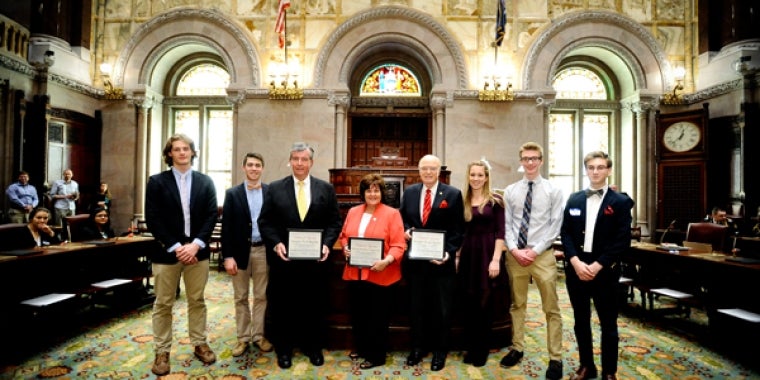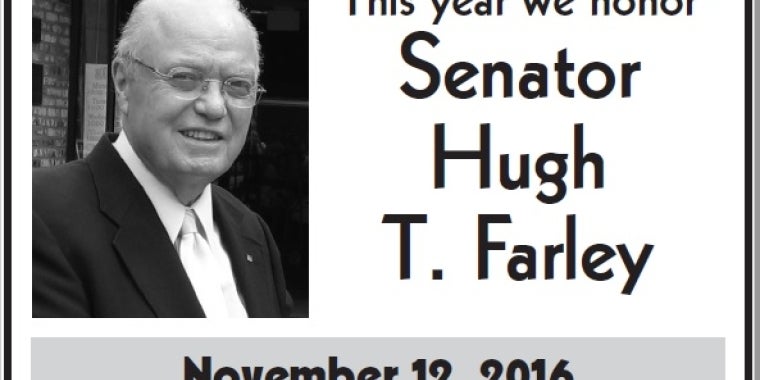
Senate Passes Michelle and Jordan's Law
Hugh T. Farley
May 10, 2011
-
ISSUE:
- Crime
State Senator Hugh T. Farley (R, C, I - Schenectady) announced that he and his colleagues in the New York State Senate passed legislation on May 9th to increase penalties for unlawful high-speed car racing which has caused numerous accidents across the state, including the deaths of a 17-year-old Staten Island girl and a 5-year-old Queens boy. Michelle and Jordan’s Law (S.2938A) stems from tragic crashes involving suspected drag racing at excessive speeds.
A 2007 crash killed Michelle Arout when a group of four friends driving a Honda Accord got involved in a race with three other friends traveling in a Ford Mustang. As the Honda reached speeds as high as 95 mph, the driver lost control and slammed into the Mustang. The car smashed into the metal post, slicing the car in two, sending Michelle and her boyfriend, who were passengers in the back seat and not wearing seat belts, ejected into the woods. Michelle died and her boyfriend was left critically injured.
John Arout, Michelle Arout’s father, said, " In 2008, the Senate passed Michelle and Jordan’s Law and a number of other bills designed to keep New York’s younger, less experienced drivers safe while on the road, but the Assembly failed to act on any of those bills. This is a good bill and I’m glad the Senate Republicans are continuing the fight, but let’s hope the Assembly passes the bill this time around to save teen lives."
In 2008, five-year-old Jordan McLean of Queens was thrown from his aunt’s SUV and killed after their vehicle was struck by suspected drag racers. Jordan and his aunt, Claris Edwards, were driving on 109th Avenue in Queens -- a drag racing hot spot -- when they were faced with two cars head-on. After colliding with one car, the other drove off and did not return, while the passengers of the car that hit them fled the scene.
Studies have concluded that speeding increases the likelihood and severity of a crash. The faster a vehicle is moving, the less time the driver has to react to a hazard and less time that other road users can react to that vehicle. A speeding vehicle requires more time and distance to stop, and is harder to control. The bill passed today would help reduce speed-related fatalities by increasing penalties for unlawful speed contests and races, and in particular, would provide that a second conviction within 12 months would result in a class E felony punishable by up to one year in prison.
The bill has been sent to the Assembly.
Share this Article or Press Release
Newsroom
Go to NewsroomSenator Farley Chats With Students
November 17, 2016

Gloversville Students Meet With Senator Farley
November 17, 2016

Senator Farley Salutes Student Senators
November 16, 2016

